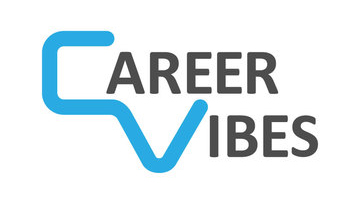I have lately been talking to more and more people in my network that are unsatisfied with their current career journey or yet to find what fits best for them.
I can’t blame them, there are so many options out there – it is overwhelming, and how to find out what your true talent or pathway looks like?
Here are a few steps condensed from an article I found very useful and that will hopefully provide some guidance around this topic.
Regardless of whether you are fresh out of university or you’re considering a career change, giving your career choice a serious consideration can make a big difference in your overall feeling of success and happiness in life.
1. Take a career assessment test
Think of choosing a career like a jigsaw puzzle. Many pieces need to fit nicely together to build a complete picture of who you are as a professional. Consider several factors such as your personality, natural talents, interests, lifestyle, and existing skill set. It can be hard to identify all of these by yourself; that’s where career testing comes in.
Career tests are a great way to filter through the noise and uncover your true talents and traits. Our thoughts and opinions can be subjective and flawed, making it difficult for us to understand what we want to do in life. Therefore, these tests can help you see yourself in a more objective light and take informed decisions about your career.
Psychometric testing analyses different facets of your personhood, including your aptitude, cognitive abilities and personality, and uses this data to measure your suitability for various roles and working environments.
2. Identify what is important to you
Rather than letting salary be the determining factor for your career choice, think about what else you would value within a profession. Whatever your choice, make sure to select a career that aligns with your values and expectations, as it can have a significant impact on how happy and satisfied you will be with your career in the long run.
3. Take action
If you are considering two career options, pick the one that is more accessible to you and take it from there.
For example, you might have a degree in finance, but you find yourself drawn to writing and graphic design. How do you choose which one to pursue? Why not pick a job with a financial firm and offer to help out the marketing team with their content or graphic design needs? This way, you have got your leg through the door and can try out your other career paths without suffering any financial loss.
4. Start networking
I have said it many times on previous blog posts, but this is really so important. Meeting people who work within your potential industries might be one of the most critical steps you take in your career journey.
We often underestimate the role networking can play in our job search, opting for more conventional methods such as job boards and job adverts. But networking can play a significant role when it comes to career exploration. The more people you meet from different walks of life, the more of a diverse portfolio of opportunities and insights you will gain. Ultimately, networking could help you decide whether a career path is right for you or not by merely talking to others.
5. Take your Lifestyle into account
Lifestyle is rarely if ever, considered when we are making a career choice. However, every job comes with a different schedule, dynamic and working space.
Lifestyle refers to your preferred day-to-day dynamic. Would you like to have a set nine-to-five job and then forget about work once you log off, or do you prefer to have flexible working hours, which might also mean working well into the evening? Do you prefer being indoors or outdoors? Do you like to work with people or by yourself? Some professions are intrinsically collaborative, while others might rely more on solitary work.
6. Stay open to change
One way to release some of the pressure of making the right choice is to tell yourself that the career you choose doesn’t have to be the be-all and end-all. We can sometimes be too strict with ourselves, thinking there is only one true calling and that, if we haven’t found it, we have failed. Nothing can be further from the truth.
When choosing your career path, think about your interests but also be aware that these interests can change over time. This means that your career doesn’t necessarily have to follow a straight, linear path, and that’s okay.


Recent Comments